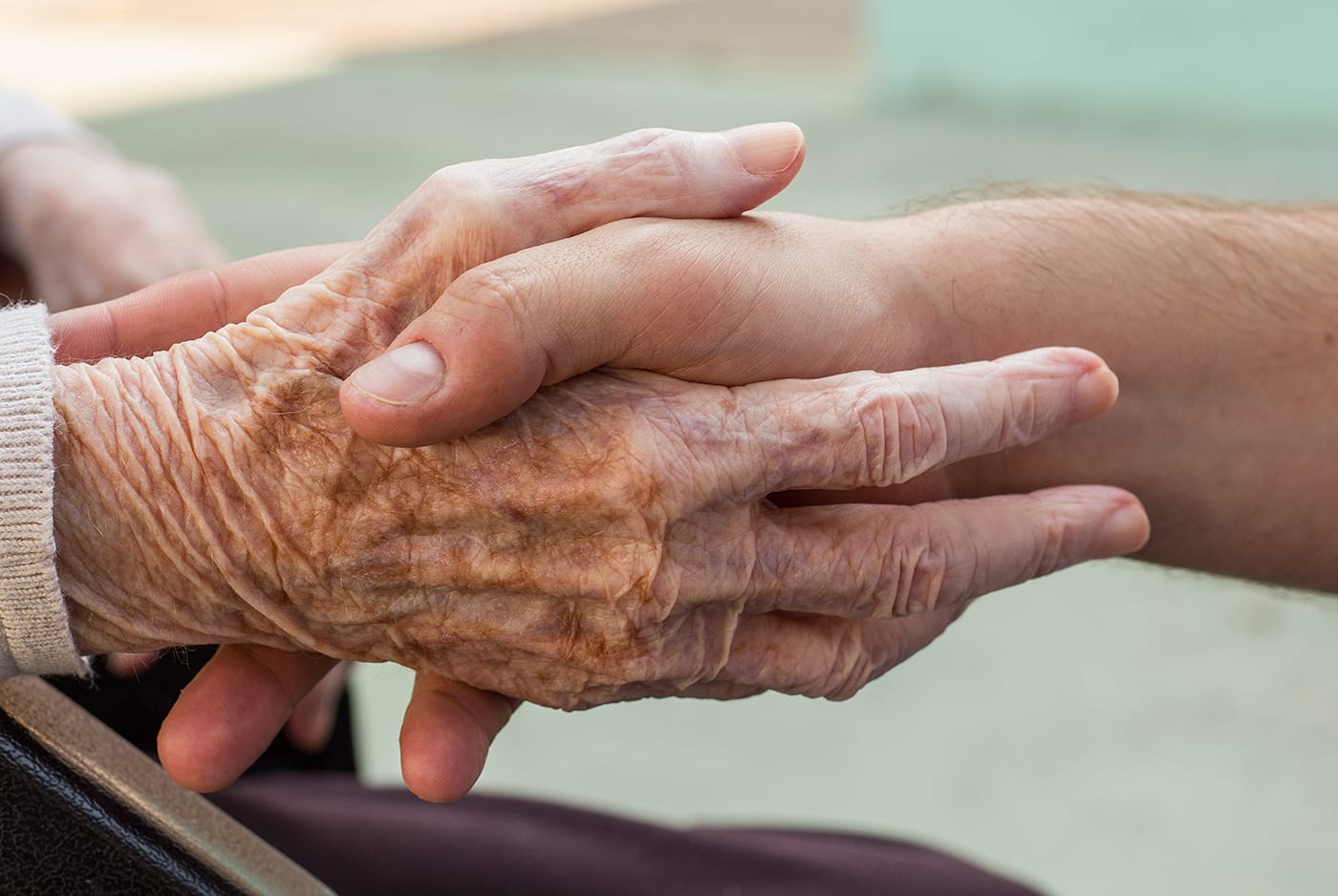Accompanying Brother Carlos Castillo in his illness helped the religious to grow as persons and to find God in human frailties.
At least three times a week, the young religious of the Nuestra Señora del Buen Consejo Formation House in Monachil (Granada) visited one of the nursing homes in the southern Spanish city. In the best way, they would organize themselves to study and make time to go to the residence where Brother Carlos Castillo was staying. The Augustinian Recollect suffered a broken hip in 2018 and, thinking of better assistance for his delicate situation, he was admitted to a care center for the elderly. His younger brothers would go there weekly to accompany him and transmit to him all their affection, which he received with all his enthusiasm.
He always tried to pass on his enthusiasm to others. Esteban Quiré, a religious in formation, tells us that on the days when they went to see him, he was restless all day and informed the rest of his companions that the friars were going to visit him. For many, going to the residence could be an inconvenience, so they had to make a great effort, but when they arrived they were always rewarded. Brother Carlos would welcome them with a smile. “There was never a day when he received us sadly; he always asked us about the convent,” says Fernando Ferreira, a religious now in Argentina. The goal was that he would always be accompanied. “We didn’t want him to feel excluded or abandoned,” says Esteban.
Growing with the sick
The encouragement of the religious who came to visit him was transmitted to Carlos, who already had enough energy. He always had an anecdote to remember and a joke to tell. He even made his own self-diagnosis: although his condition was not optimal, he repeated that he could be worse. Esteban Quiré was surprised to hear his father’s story. Carlos Castillo was a native of Motril; his father, who was mayor of the city of Granada, died shot, like the Augustinian Recollect martyrs, in the Spanish Civil War. All the visits converged in a recurring phrase of the friar: “I am a slave of the slave: Mary”.
Fernando Ferreira was one of the few friars in the convent when Carlos broke his hip after a fall. The young man was finishing his degree and had to combine the completion of his studies with the care of his brother. “When they sent him to a residence it hurt me, because I didn’t understand that his last years would not be spent with his religious family; but in the end I understood that it was the place where he would be best cared for,” he explains. The first few weeks they spent an hour with him every day. Fernando assures that, when he went to see him, he was not visiting a sick person but his own brother. “I grew a lot humanly and as a Christian,” because he discovered that the vocation is not for himself but for others, because God manifests himself through oneself.
“Being Christ” for the sick
In this sense, Esteban believes that by accompanying the sick one can be “that Christ”. Visiting the sick should be, according to him, a priority for every Christian. “Jesus invites us to be close to those who are farthest away,” he says. The sick, he says, are in their own periphery, in their loneliness. Being close to the sick means being aware of human weaknesses. It is not an easy undertaking, but for Fernando Ferreira it is “an intimate relationship.” “You see human frailty.” In this relationship between the sick person and the companion, the most human and tender side is discovered, although it is the latter who wins the most. It is in these situations that God presents himself most clearly.
Accompanying Brother Charles was, for the religious, a source of joy. They experienced the happiness of giving themselves to others, of love in its maximum expression. Carlos Castillo, like many sick people, had a story behind him. “He helped to build the history of the Augustinian Recollects from his particular work,” Fernando opined. After his death in April 2020, many of the people who shared life with Carlos say that they carry something of him in their lives. His story was anonymous but unique.


